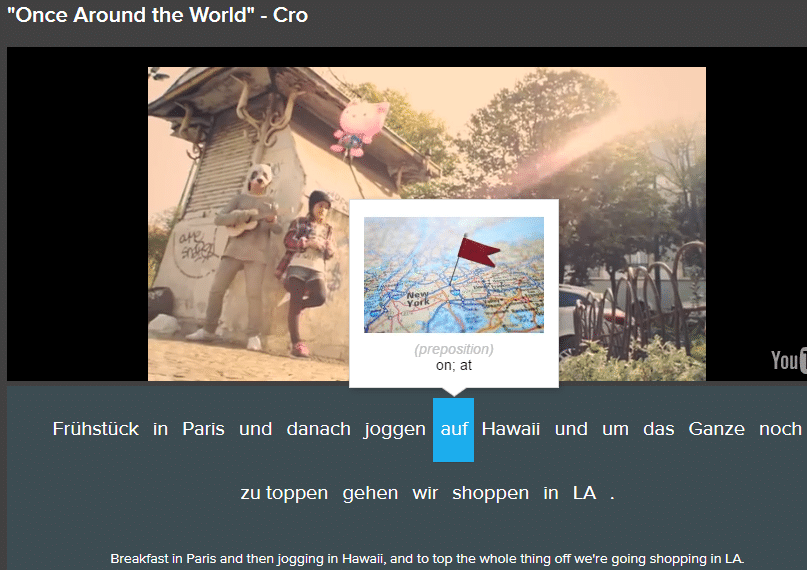http://www.childrensbooksforever.com/childrenpages/German1.html
Dinosaurier Geschichten
Waldo, der Hund
Die Bremerstadtmusikanten
Der kleine Riese
und mehr!
Scroll through these well loved stories which are no longer being published.

Apprentices from Spain, Sweden and across Europe are all heading to Germany where there is a shortage of workers. Photo: DPA
Published on: 20 Jan 2014 10:10 CET
On a snowy January day, the waiting room of the Malmö branch of the Swedish Public Employment Service is curiously quiet. A group of young people are inspecting their CVs ahead of a presentation entitled ‘The job of my life’.
Berlin and Hamburg are calling for a number of young Swedes who, fed up of being unemployed back home, are tempted by Germany’s apprentice programme. The scheme offers not only a salary, but free German lessons.
Germany’s apprentice scheme has been lauded for keeping youth unemployment low, and has been cited by Sweden’s Finance Minister Anders Borg as something his own government should try to emulate.
In Sweden, almost 20 percent of those aged between 15-24 cannot find work. In Greece and Spain it is one in two. But at 8 per cent, Germany's youth unemployment rate is the lowest among EU countries making it a tempting location for the young and jobless.
In late 2012 Germany signed a deal with six EU countries - Spain, Greece, Portugal, Italy, Slovakia and Latvia - to introduce Germany’s apprenticeship model to their countries.
It also made it easier for young people to find employers in Germany with the aim of setting up 30,000 exchanges.
And its strong economy has turned Germany into an immigration country. The number of foreigners living in Germany grew at its fastest rate for 20 years in 2012 and now stands at a record level of 7.2 million.
But why Germany?
“Why not? There is nothing for me here in Sweden,” Molly Stigsson, 24, from Halmstad, western Sweden, tells The Local. "So many people my age are all fighting for the same jobs."
Stigsson studied journalism and photography but has struggled to find work since completing her studies. She admits that she’s been unemployed on and off for the past five years and wants to try something else.
“I’m applying for some baker and pastry chef positions as that's been a dream of mine. Going to Germany seems exciting to me,” she says, having ruled out going back to school in Sweden.
Chef Robin Hermansson, 21, travelled from Linköping, southern Sweden, for his interview and says he has been out of work since last March.
“It’s tough to find work in Sweden for my profession. I’m here partly because of the job situation in my own country but also because this is an amazing opportunity,” Hermansson says enthusiastically.
Pitching the ‘Job of my life’ is Eures (European Employment Agency) adviser Annette Zellmer. She says that Germany is “desperate” for apprentices in part because of the country’s low birth rate.
Attracting Swedes to Germany is not a new idea for Eures. A previous apprentice scheme failed as only candidates who could speak German were able to apply.
Now the language barrier has been removed, with mandatory lessons included as part of the training. The move has seen an upturn in interest from job-seeking Swedes.
Carpenters and bankers
“This is company-based education that lasts between two and half and three years. By coming to Germany, you can add to your reputation and develop further in your career,” Zellmer tells the young Swedes during the presentation.
The programme, which is funded by the German government until 2016, wants to find apprentices aged between 18-35 to work in industries as diverse as carpentry and banking.
Eures has calculated that there are 348 different occupations potentially available, with similar apprentice schemes for job-seekers from Portugal and Spain proving successful.
“Sweden looks very seriously at youth unemployment as the figure is quite high. Any chance to go abroad for work and education is encouraged as it’s a fantastic opportunity. Swedes adapt quite easily to Germany and have a good reputation there,” Maria Bergström, a Swedish Eures adviser, tells The Local.
Removing barriers
Getting to grips with the German language is key for any wannabe apprentice. Following the failure of the previous scheme, Eures has pulled out all the stops with an estimated 600 lessons (each lasting 40 minutes) to be completed by August 1st by the candidates.
Under a special arrangement with Sweden, the first 400 lessons can be studied online from home, with the remaining classes to be finished in Germany. For most Swedes, it will be their first exposure to German. Indeed, many of those who attended the presentation in Malmö have never even been to the country before.
“I’m a bit nervous about it as I don’t know any German at all but I am going to try to learn,” says Stigsson while Hermansson says “It’ll be fine... I think.”
And if any of the Swedes were under the impression they could cruise through the lessons when they move to Germany, such thoughts were swiftly extinguished by Eures’ German adviser.
“You can’t sit around and look out the window. When it comes to school exams you have to pass them,” Zellmer says matter-of-factly.
Funding for the language course is part of the modular programme, which also covers the cost of living. The most any apprentice can earn is €818 a month, but that amount may be reduced depending on accommodation costs.
While many expats to Sweden may be surprised to learn there isn’t a washing machine provided when handed the keys to a flat, in Germany you’ll have to do without a fridge and oven too when you move into an apartment.
“A typical German flat is basically empty but the employer helps the apprentices find furniture. And as part of the programme there is social assistance to help with things like opening a bank account and making friends. You are treated just like any other German apprentice,” says Zellmer.
Swedes who are successful and complete the first two phases of the programme, which includes the 600 language lessons, are then eligible for a vocational training contract with a German company combining work and studies, which can last up to three and a half years
One Swede eager to make the move is Zlatan Mukladzija Kemal. He took a six-hour train trip from Borås on the west coast in order to come to Malmö for his 30 minute interview.
“Had this scheme been around a few years ago I would have gone then,” Mukladzija Kemal, who has previously worked in the hospitality sector, tells The Local. After sitting through the one-hour presentation the 21-year-old is even more determined to fulfill his German dream.
"I’ve been in Sweden most of my life and I’m a bit bored of it," he says.
And unemployed skilled workers from other areas of Europe are also being sought out by recruiting programmes to plug shortages in the German workforce.
A scheme started in 2012 by the Chamber of Crafts for Munich and Upper Bavaria aimed to put Spanish semi-skilled workers in touch with Bavarian employers in need of labour.
"Given the high youth unemployment in Spain at the moment, there was this idea that there are a lot of people in Spain who could do the work, [and] we have a lot of companies that need to fill their vacancies," Elisabeth Kirchbichler, one of the coordinators of the program, told Spiegel in May 2013.
Kirchbichler said that officials from the local chamber of commerce in Cordoba, Spain had given her over 1,000 job applications from Spanish people who wanted work in Germany.






















